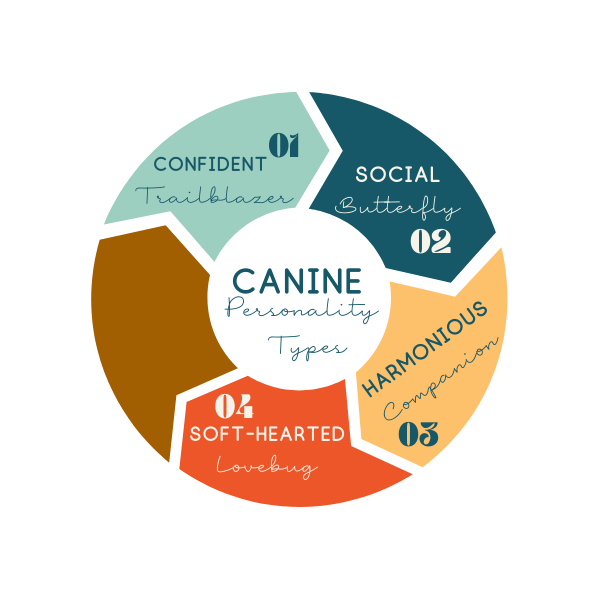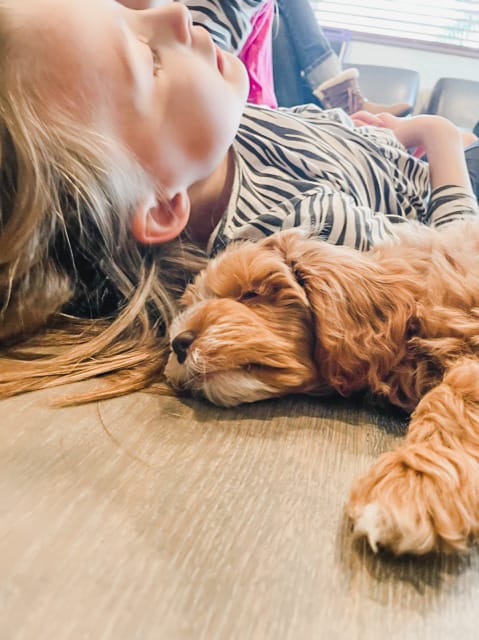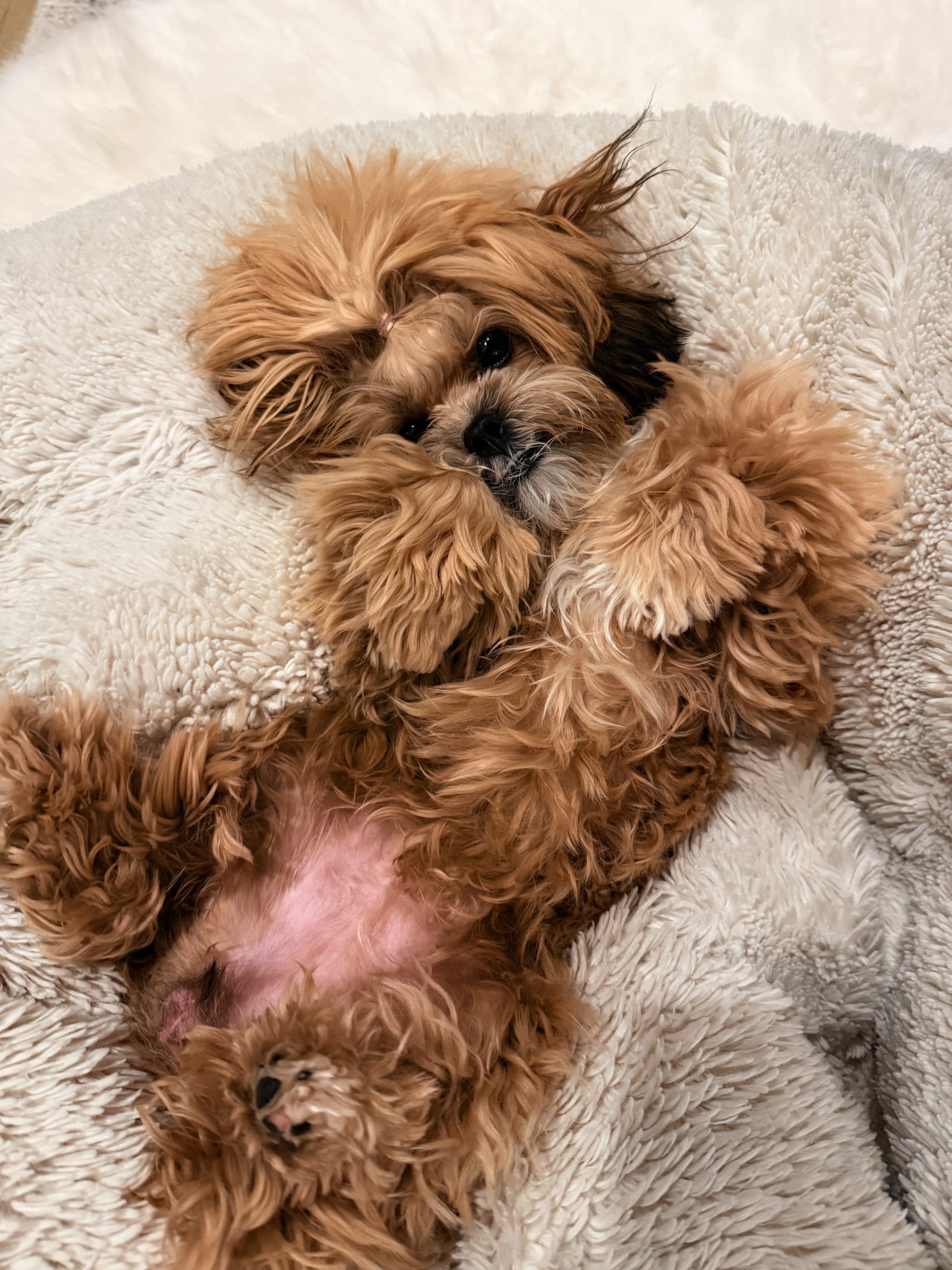The Habibi Puppy Alignment
...finding your perfect match
Welcome to the most personalized match—an intuitive, one-of-a-kind process where I personally guide each connection, ensuring every Habibi Bear finds the family they’re truly meant for.

At Habibi Bears, matching a puppy with the right family is more than a checklist—it’s a deeply personal and intuitive process that I, Julie, personally oversee. Over the years, I’ve honed this gift, leaning into my inner guidance to understand the unique energy signature each puppy carries.
Rather than relying purely on science, I blend my intuitive connection with an in-depth puppy assessment, ensuring each match aligns on a soul level. Sometimes, the right match is clear immediately. Other times, I hold onto puppies a little longer, waiting for the universe to bring the perfect family to us.
I trust this process so fully that I’ve even turned families away when I felt the alignment wasn’t right. If you see a puppy on our Ready Page, they’re not just waiting for a home—they’re waiting for their home, the one meant just for them. This journey takes patience, trust, and an understanding of energy and alignment, but when the right match happens, it’s pure magic.
“She did amazing from day one, and since then has been my shadow. She’s now ten“
-Dorothy
She has changed my life for the better and I love her SO much. I have considered many times welcoming another dog, but I only want one just like her. She is that special to me and is my whole world.

The Habibi Curriculum:
Week-by-Week Development

How
the Habibi Alignment Works
Our evaluation process begins from 4 weeks when puppy’s energy begins to emerge, a critical time when puppies begin to show their personalities.
Steps in the Process:
-
Intuitive Temperament Assessment:
Puppies are observed in various scenarios to assess traits like confidence, motivation, and focus. -
Matching with Families:
Using insights from the Habibi Alignment, we pair puppies with families based on their preferences and lifestyle. - Healing Power Element:
We analyze each puppy’s emotional processing style—Earth, Water, Fire, or Air—helping families understand their puppy’s unique gifts. -
Detailed Write-Ups and Scorecards:
Families receive a comprehensive profile of their puppy, including photos, temperament traits, and practical tips for raising them
The Healing Power
of Habibi Bears
Our dogs are more than companions—they are natural healers. Through years of observation, we’ve identified how each puppy processes emotions and energy, using this insight to guide our matches.
The Four Elements:
- Earth Element: Stable and comforting, ideal for therapy and facility work.
- Water Element: Reflective and adaptable, perfect for calm and nurturing households.
- Fire Element: Energetic and joyful, excellent for families with children or active individuals.
- Air Element: Intuitive and empathic, suited for healers, artists, and those seeking a gentle companion.
These traits go beyond temperament, helping you form a deeper connection with your puppy.
Puppy Personalities
Who’s Your Match?
During this crucial phase of the assessment, we delve into the intricate details of your puppy’s personality. Meticulously paired with the puppy parent questionnaire, this aspect enables us to discern which puppies in the litter are ideally suited for your unique lifestyle. We unravel the layers of your puppy’s temperament, uncovering traits that define their individuality. From their playfulness to their level of adaptability, we strive to provide you with a comprehensive understanding of each puppy’s personality. This harmonious pairing of assessment insights and your preferences ensures that the chosen puppy not only fits seamlessly into your life but also becomes a cherished member of your family.

Confident Trailblazer
- Traits: Fearless and curious, always ready for adventure.
- Best For: Active families or individuals seeking a spirited companion.
- Training Tip: Focus on positive exposure to new environments to channel their boldness, and work on impulse control early on by not allowing them to say hi to every dog or person they meet.
Social Butterfly
- Traits: Outgoing and playful, enjoys social interaction.
- Best For: Families with children or those desiring a social butterfly.
- Training Tip: Regular friendly dog playdates and enrichment activities will keep them happy. Practicing Place and Serene Sit will help them learn their ‘off-switch’ and switch between play and rest drive.
Harmonious Companion
- Traits: Calm and easygoing, eager to please.
- Best For: First-time puppy parents or families seeking a mellow companion.
- Training Tip: Reinforce their calmness with consistent, gentle guidance. While they are often forgiving of human mistakes, please don’t take their good behavior for granted; remember to reward it to prevent losing their trust and harming your relationship.
‘Soft-Hearted Lovebug
- Traits: Reserved and empathic, thrives with patient and calm support and companionship.
- Best For: Quiet households or individuals seeking a laid-back companion.
- Training Tip: Gradual exposure to new environments builds confidence. Advocate for them and always allow them the option to ‘opt out’ of interactions with people or dogs. Teach kids and others what ‘Consent Petting’ is, and how to read dog body language.


because every pup is an individual
Temperament Explained

STABLE TRAITS:
- Assertiveness (with humans and dogs)
- Motivation
- Energy Level
- Human Focus
- Tenderhearted
- Forgiveness
Adjustable Traits:
- Confidence
- Nerve Strength/ Resiliency
- Touch Tolerance (compliance only-not if they like it)
- Sound Sensitivity
- Sight Sensitivity
What is Assertiveness?
How comfortable a puppy is with humans. Do they try to impose their way (high) or naturally submit to human authority (low)? To test this, we observe if the puppy comes to the tester on their own initiative without the tester interacting with them.
What is Confidence?
How confident is the dog in its own abilities in new environments? When entering the testing area, how does the puppy respond to the unfamiliar place and objects?
What does Motivation level mean?
Does, the dog naturally want to work for humans? This portion of the test involves asking the puppy to do something like play fetch, tug, and engage with the person. Is the puppy following what the tester asked them to do or is the person having to work really hard to get the puppy to do what they’ve asked?
What does energy level mean?
How energetic is the puppy is moving throughout the test? Do they take breaks and rest or constantly run around? This is graded on an overall comparison of the entire litter as a whole.
What is tenderhearted?
- Does the puppy interpret the tester’s behavior as play?
- If so, do they engage by pulling hair, tugging socks, or approaching the tester’s face?
- How long does this engagement last? Do they quickly lose interest?
- Do they show concern initially, then return to their toys?
- Do they ignore the situation entirely and focus on their toys?
- Does the puppy become overwhelmed by the emotions and cower or try to hide?
What does forgivness level mean?
This often contradicts what most puppy parents might initially believe they need. A forgiving puppy tends to attribute all mistakes, whether yours or theirs, as their own fault and is eager to rectify them. This quality becomes especially significant when considering placement in homes with young children or adults prone to emotional outbursts. A forgiving puppy may respond by trying to gain favor and becoming overly submissive, or reactive in the wrong home. On the other hand, an unforgiving puppy recognizes instances where you lose your cool or a child accidentally hurts them, taking this into consideration and understanding the responsible party without taking it on as their problem. Both reactions provide valuable insights and are equally lovely puppies with different needs. By giving our puppies a voice in their placement, it allows us to better understand and respond to our puppy’s emotional needs.
What does healing power mean in puppies?
This is a distinctive segment of the test that we’ve crafted over years, drawing insights from observing puppies’ responses during evaluations and tracking their long-term progress with their families. Within the framework of the Habibi Method, we refer to this as the “healing power.” Each evaluation is individual and exceptional. When coupled with the forgiving and tenderhearted aspects, this component elevates our evaluation, offering a profound understanding of our puppies at a soul level, helping our clients become the ultimate puppy parent of their little Habibi.
Earth, Air, Water, Fire
What do the personality types mean?
This facet of the assessment is derived from a specialized formula crafted by Dr. Meg Howe. We integrate this with your Owner Questionnaire to offer tailored recommendations for the ideal personality that aligns with your requirements.
Bold/Confident
Social/Friendly
Gentle/Cooperative
What does nerve strength mean?
How does the dog handle stress and react in different situations? Low is easily stressed, and high means they are able to adapt more easily in stressful situations. Nerve strength is observed throughout the test and we watch to see how the puppy handles stress or startles and if they are able to overcome their fears.
What is sight and sound sensitivity?
It’s normal for a puppy to startle at loud sounds or unexpected movements, but what matters is how they recover. We focus on how quickly they bounce back and encourage them to investigate.
A low score indicates a high tolerance for noises or visual surprises, while a high score suggests sensitivity. This is an adjustable trait, meaning families can help their puppy build resilience and confidence through the homework plan provided when the puppy comes home.
What is touch tolerence?
How does the puppy react when they are roughly touched (have their tail tugged, toes touched, etc.) Low scores mean the puppy doesn’t handle unwanted touch well, and high scores mean the puppy wasn’t stressed and enjoyed being touched the whole time. A lot of puppies will even enjoy this portion of the test.
What is human focused?
How interested are they in ‘following the pack’ and giving attention to the human? Do they like to get the lay of the land first before interacting? Are they keenly aware of environment and less of human? Both? Low means they want to discover on their own, Medium means they are a mix of both, and high scores mean they are attentive to people and focus on them. Knowing this helps us understand our puppy’s needs and how to work with them!
Snuggle Up to Your New Adventure
Connect with Us Today!

The Habibi Method Evaluation Process
Giving Every Puppy a Voice

Our evaluation process honors the individuality of every puppy. Using the Habibi Blueprint, we assess each pup’s stable and adaptable traits, uncovering their learning style, energy levels, and emotional resilience. This allows us to match them with families where they will thrive.
What We Evaluate:
- Personality Traits: Friendly, bold, shy, gentle, or cooperative.
- Temperament: Confidence, resilience, energy levels, and human focus.
- Unique Elements: Healing power and emotional intuition, categorized into Earth, Water, Fire, and Air types.
By understanding each puppy’s essence, we can confidently pair them with their ideal home.
Why Temperament Alignment Matters
Dogs, like people, are individuals. A puppy’s temperament determines tendencies in how they’ll interact with their environment, handle challenges, and bond with their humans.
Key Questions We Consider:
- Do you have young children? Some puppies are naturally suited to family life.
- Are you looking for a therapy or service dog? Certain temperaments excel in these roles.
- Is your household active or calm? Puppy energy levels should align with your lifestyle.
- Do you have specific health or emotional needs? Puppies with high emotional intelligence and healing power can offer incredible support.
Keep in mind that a puppy’s temperament is shaped not only by genetics but also by their environment and experiences. We’ve set them up for success by providing a strong foundation, but their full potential depends on how their family nurtures and guides them. Just like humans, dogs continue to grow and evolve, and their personalities can shift over time based on their experiences and interactions.

Why You Can’t Pick at Birth
We understand the excitement of choosing a puppy early, but personality and temperament traits don’t emerge till later. Matching based on appearance alone would be a disservice to you and the puppy.
By waiting until temperament testing, we ensure:
- Puppies are placed in homes where they will thrive.
- Families have a deeper understanding of their puppy’s needs and personality.
Trust the process—it works! Many of our families return for second (and even fourth!) puppies because they’ve seen firsthand how our method creates lifelong matches.
Beyond the Evaluation:
Setting You Up for Success
Once your puppy is matched, we provide tools to help you continue their journey.
- The Human’s Guide to the Dog Galaxy Course: A step-by-step program to guide your puppy’s development.
- Follow-Up Support: Access to our text line and Zoom calls for personalized advice.
With the Habibi Method, we empower you to raise a confident, happy, and well-mannered puppy.
Join the Habibi Tribe
Through our thoughtful evaluation process, we create matches that change lives. Whether you’re seeking a loyal family companion or a life-saving service dog, the Habibi Method ensures every puppy finds their perfect home.
Ready to Find Your Perfect Match?
“Our two Habibi Bears are the BEST “
-Gerry
Our sweet boys have been the best addition to our family. They greet each of us equally and are the best buddies to our children. Thank you for raising these gentle souls; they are the sweetest.







